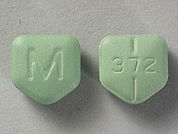Cimetidine
Cimetidine
What is Cimetidine used for?
Cimetidine is used to treat ulcers of the stomach and intestines and prevent them from coming back after they have healed. This medication is also used to treat certain stomach and throat (esophagus) problems caused by too much stomach acid (such as Zollinger-Ellison syndrome, erosive esophagitis) or a backward flow of stomach acid into the esophagus (acid reflux disease/GERD). Decreasing extra stomach acid can help relieve symptoms such as stomach pain, heartburn, difficulty swallowing, cough, and trouble sleeping. It can also prevent serious acid damage to your digestive system (such as ulcers, cancer of the esophagus). Cimetidine belongs to a class of drugs commonly called H2 blockers. It works by reducing the amount of acid in your stomach. This medication is also available without a prescription. It is used to treat occasional heartburn caused by too much acid in the stomach (also called acid indigestion or sour stomach). It is also used to prevent heartburn and acid indigestion caused by certain foods and beverages. If you are taking this medication for self-treatment, it is important to read the manufacturer's package instructions carefully so you know when to consult your doctor or pharmacist. (See also Precautions.) Do not use this medication to treat children younger than 12 unless directed by the doctor.
CHEMICAL NAME
DRUG TYPE
Heartburn/Ulcer DiseaseCimetidine Prices
Searching for the lowest prices
What does Cimetidine look like?
View all Cimetidine Image Information (16)Cimetidine Frequently Asked Questions
Take this medication by mouth with or without food as directed by your doctor.
If you are using the liquid form of this medication, carefully measure the dose using a special measuring device/spoon. Do not use a household spoon because you may not get the correct dose.
The dosage and length of treatment are based on your medical condition and response to treatment. Follow your doctor's instructions carefully. If you are also taking antacids to relieve stomach pain as recommended by your doctor, separate them from this medication by at least 1 hour.
Take this medication regularly as prescribed in order to get the most benefit from it. To help you remember, take it at the same time(s) each day. Do not increase your dose or take it more often than directed. Continue to take this medication for the prescribed length of treatment even if you are feeling better. Stopping treatment too early may delay the healing process.
If you are using nonprescription cimetidine for self-treatment of acid indigestion or heartburn, take 1 tablet by mouth with a glass of water as needed. To prevent heartburn, take 1 tablet by mouth with a glass of water right before or up to 30 minutes before eating food or drinking beverages that cause heartburn. Do not take more than 2 tablets in 24 hours unless directed by your doctor. Do not take for more than 14 days in a row without talking with your doctor.
Tell your doctor if your symptoms do not get better or if they get worse.
IMPORTANT: HOW TO USE THIS INFORMATION: This is a summary and does NOT have all possible information about this product. This information does not assure that this product is safe, effective, or appropriate for you. This information is not individual medical advice and does not substitute for the advice of your health care professional. Always ask your health care professional for complete information about this product and your specific health needs.



